
Vietnamese-origin singer Sangeeta Kaur - Photo: NVCC
Sangeeta Kaur or Teresa Mai is a familiar name to the Vietnamese community in the US.
This July, Sangeeta Kaur returned to visit and sing in Vietnam, this is her third return to Vietnam.
Before returning to Vietnam to sing in a music show in Ho Chi Minh City and Hanoi , Sangeeta Kaur - Teresa Mai shared with Tuoi Tre.
If Teresa Mai did it alone...
* After studying music in Boston and then in Venice (Italy), how many albums has Sangeeta made?
- Since 2015, I have had seven albums, then Mythologies by Danaë Xanthe Vlass, which I sang with Hila Plitmann and Danaë Xanthe Vlasse, won a Grammy.
This is also our most successful album.
* What does the album Mythologies mean to you?
- Danaë Xanthe Vlasse composed the songs in Mythologies in honor of her father - a Greek-American.
Fate brought us three close friends together to perform these songs. It was during the Covid-19 outbreak, we recorded at home, from many separate places and then put them together.
Being nominated and then winning a Grammy was a surprise to us, unbelievable because most of our other projects were done in huge studios with world- famous orchestras.
The success of the album Mythologies shows that when we work to our best, with a spirit of selflessness, but with pure love, there is hope for success, like a magical gift from God.
Success has made me realize that we cannot do anything alone, in most fields from business to art.
Coming together, cooperating, working together, not for personal gain but for the purpose of serving the community, overcoming difficulties is easier.
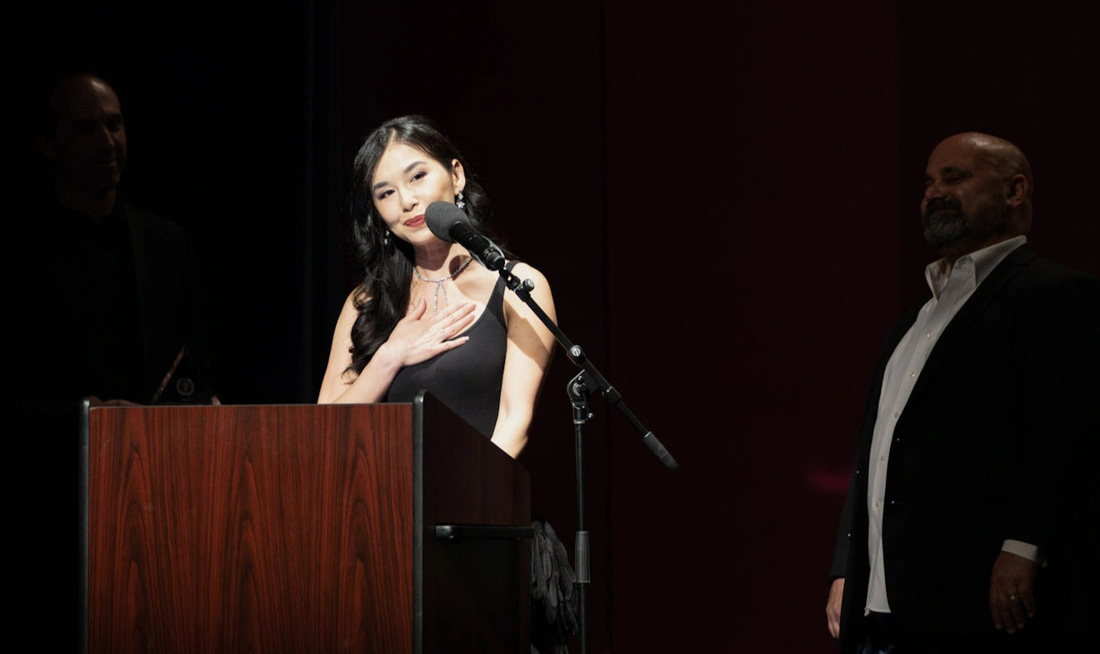
Sangeeta Kaur - Teresa Mai
* Sangeeta is the first Vietnamese woman to receive a Grammy. You have come a long way, is your own effort the deciding factor?
- Yes, my own efforts are of utmost importance, deciding 100% of my success in my career path.
I want to tell young people that whatever choice you are passionate about, find suitable for your abilities, tastes, and interests, you must pursue it to the end.
When you don't see it as a job to make a name for yourself; when you don't see it as a way to achieve success for yourself, or to make a lot of money; or when you realize that the job not only benefits yourself, but also others, then you should try to pursue the path you have chosen.
That awareness puts a heavy responsibility on your shoulders, not allowing you to give up halfway. You cannot do a little bit every day and then rest.
Understanding that your success will influence and positively impact the people around you will make you do your best.
Sangeeta Kaur - ILLUMINANCE - PBS Front and Center
* A typical example of the biggest obstacle, the biggest difficulty that Sangeeta had to try her best to overcome and almost gave up?
- Oh so many, many obstacles in the past that I had to overcome. But most specifically when practicing yoga.
There was a yoga pose that was so difficult that I always felt like I couldn't continue. My teacher kept reminding me, telling me to keep trying.
He said that when we face and overcome the most difficult and arduous challenges, it is like receiving a miraculous gift.
From this experience, I realized that all difficulties and hardships are challenges that life poses, forcing me to overcome them to see that "no difficulty is insurmountable".
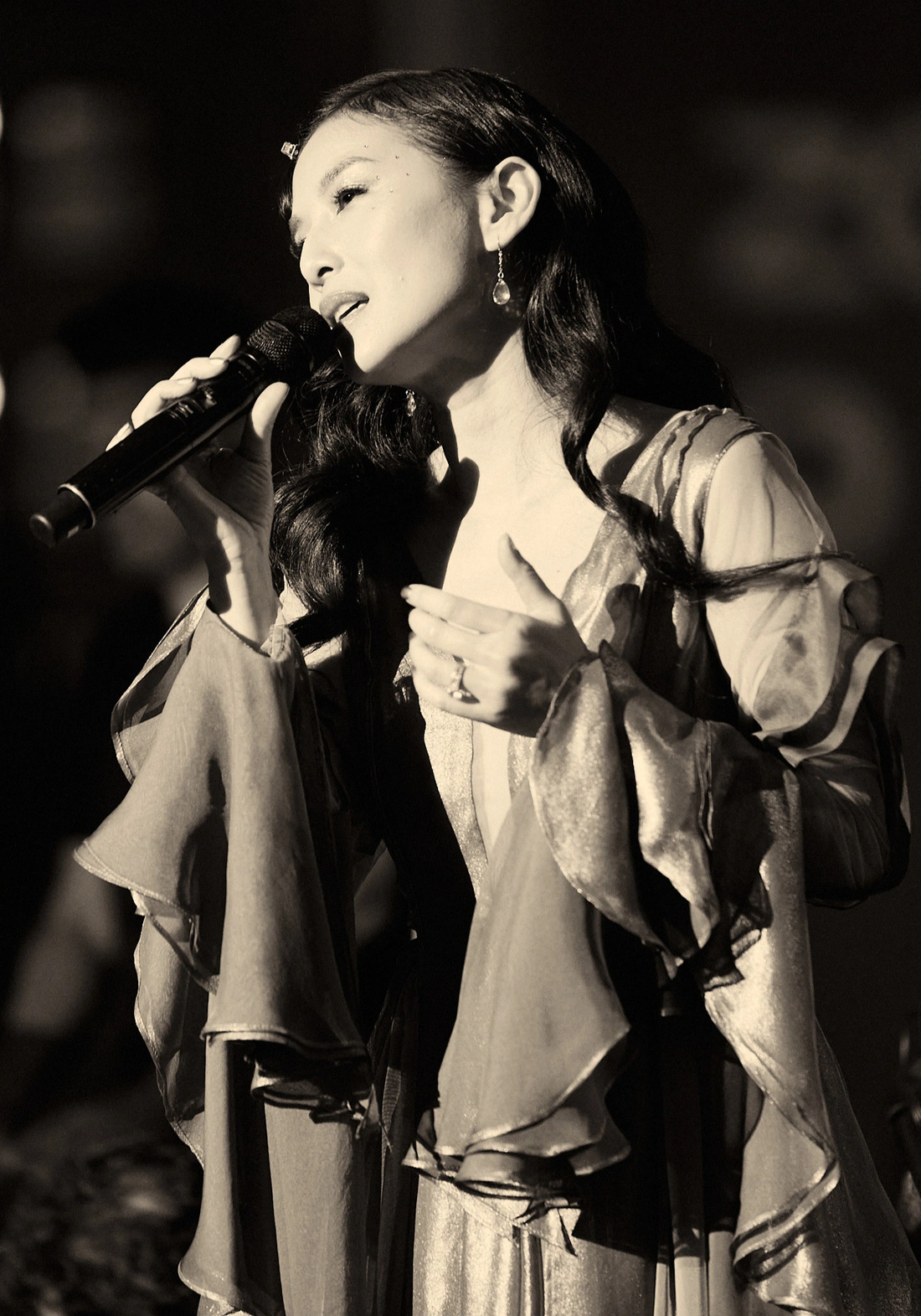
Vietnamese-origin singer Sangeeta Kaur - Photo: NVCC
Opera and mantra blend in me
* Sangeeta said that music , especially meditation music (mantra - new age), helps people have moments of peace and serenity. How many meditation music albums have you made?
- The journey in each of our lives always has many surprises and is difficult to predict.
To become a classical opera singer, I had to study a lot, very hard, very long.
You have to love opera to be patient enough not to give up halfway.
Since I started studying, I have devoted 100% of my energy to pursuing this classical music.
When I returned to New York, I met a group of young people interested in meditation and yoga.
I started following them to meditation, yoga, and met a mantra composer who also wrote classical music. I was invited to sing. After six hours of recording mantra, I suddenly felt my soul strangely light and free.
So after that, I went to the mantra studio every week. Now, every time I stand on stage to sing opera, I think of the peaceful, gentle moment when singing mantra. Gradually, opera and mantra became one in me.
The change in perception made me feel happier, grateful to God for giving me a good voice and guiding my choices.
Mantra is like a material that helps me start a good life, so I decided to put 2-3 mantras in each album.
People can chant and listen to mantras on YouTube while meditating. But for young people to listen and enjoy, I turned mantras into pop songs.
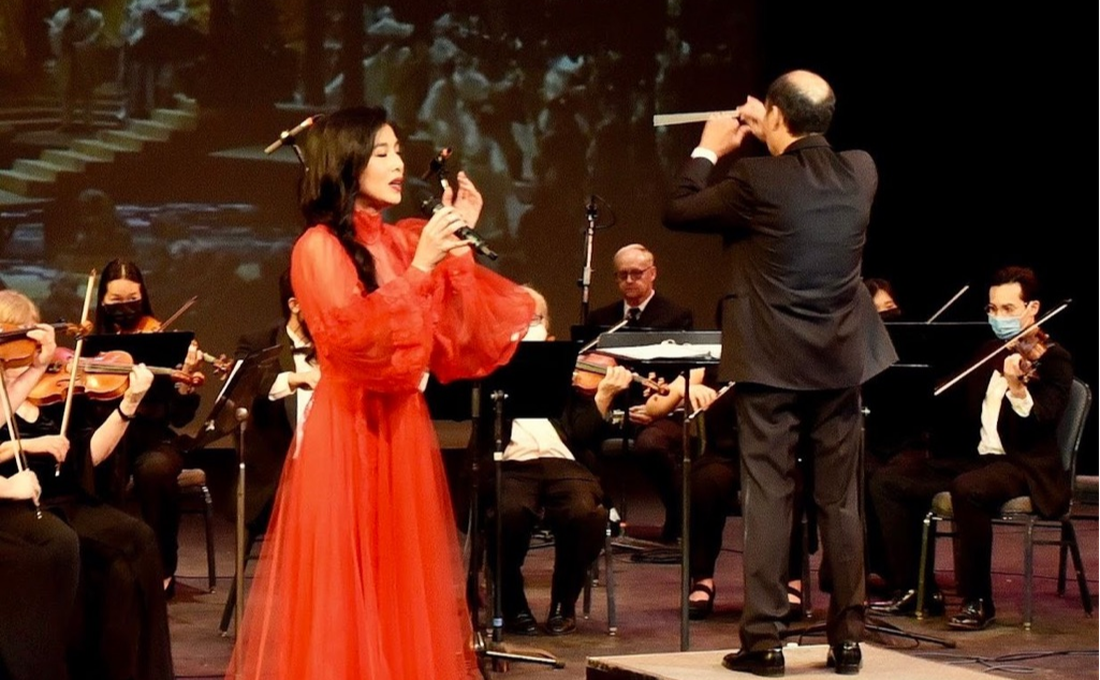
Sangeeta Kaur - Teresa Mai
* Are opera and mantra singing technically different?
- The techniques for performing these two genres of music are very different. Singing opera is much more difficult, forcing me to use my whole chest and full breath, and to know how to control and remove all the knots and worries in my mind. If I think about how to sing correctly while performing, my voice will not resonate.
When singing mantra but still thinking about cooking, thinking about the person who upsets you; or being stressed, singing will not be good.
Singers who do not find inspiration; do not feel happy to sing; do not realize that music represents the connection between heaven, earth and human beings, then their singing and lyrics do not affect the listener.
The performance styles of the two genres are also different. Opera has a more nasal pronunciation while mantra is simpler, softer, more conversational.
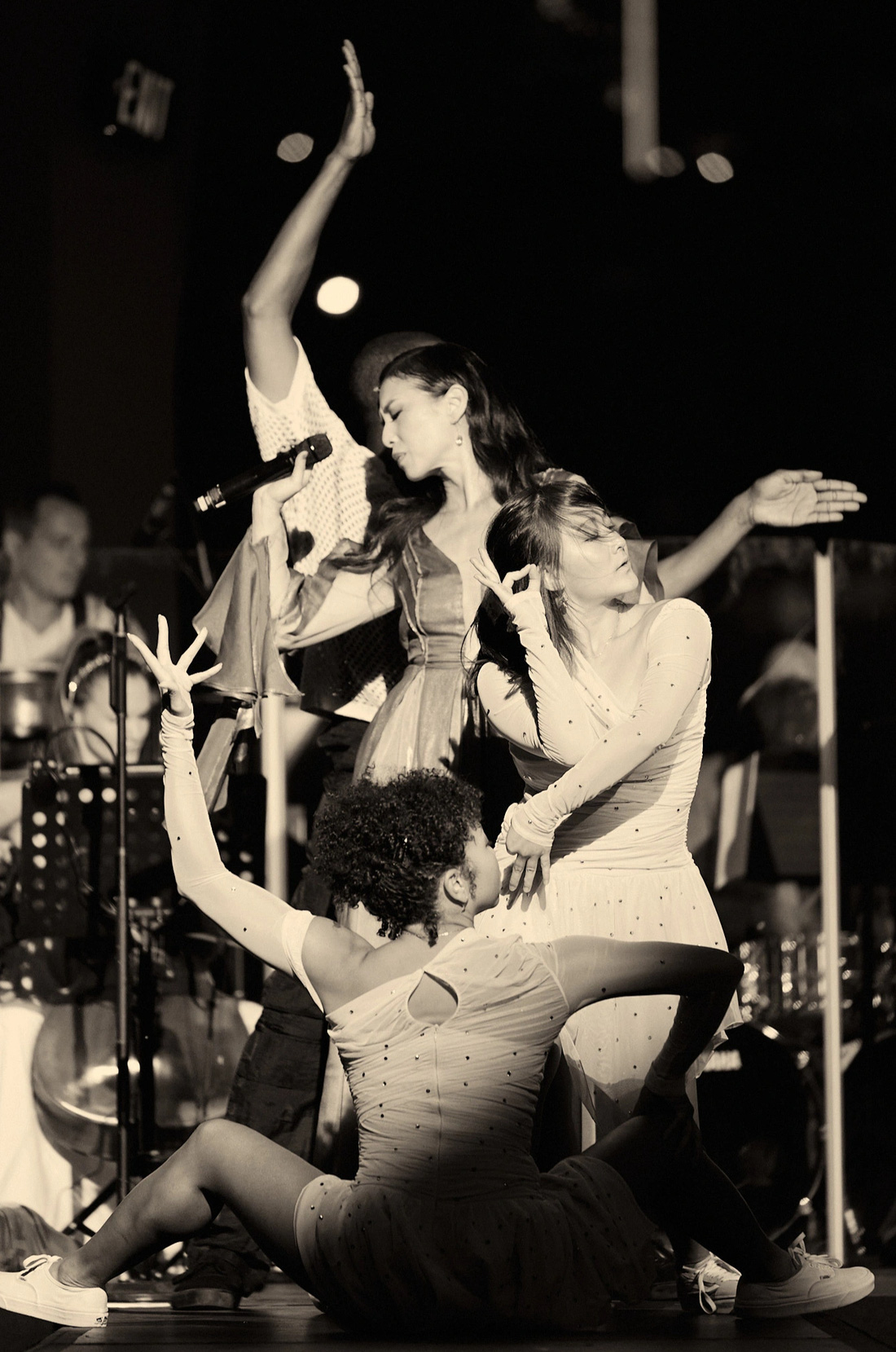
Vietnamese-American singer Sangeeta Kaur - Teresa Mai
Although it is difficult, I really want to sing many Vietnamese songs.
* Does Sangeeta have any plans to help youngsters in music?
- We are giving scholarships to help young people, especially those of Vietnamese origin, to study music and art, provided they are intelligent and talented.
When I was young, I had to work 3 or 4 jobs to earn money to pay for my tuition. If I had someone to help me back then, I might have gone further and faster (laughs).
My husband and I have given scholarships to 10 Vietnamese children who are passionate about studying, helping them confidently pursue and realize their dreams.
* Sangeeta sings in English, performs French, German, Italian songs easily, but not Vietnamese. Will Sangeeta try to sing in Vietnamese in the future?
- I was born in California, studied Italian, French, Russian, and found Vietnamese music to be very difficult to sing. Before singing the song "Cat Bui" by musician Trinh Cong Son, for example, I had to learn to understand where and why he wrote this song.
To sing a Vietnamese song, I have to learn about the background and biography of the musicians, including Vietnamese history, and everything related to the song, and I have to grasp the meaning of the lyrics. Although it is difficult, I really like and want to sing many Vietnamese songs.
* What will Sangeeta do on her next trip to Vietnam? What do you like most about Vietnam?
- This is the second time I have been invited by the US Embassy in Hanoi and the US Consulate General in Ho Chi Minh City to sing on the occasion of Independence Day, July 4. I first visited Vietnam in 1997 and returned again in 2015, surprised by the development of transportation.
What I like most and always remember is the friendly, open eyes of the young Vietnamese women I met. They are under 30 years old, working in the fields of business, finance, and medicine.
I hope to have the opportunity to return to Vietnam many times in the future to talk with women about the art of music, about the important role of women in building a happy and healthy society.
Source: https://tuoitre.vn/female-singer-goc-viet-sangeeta-kaur-teresa-mai-hay-kien-nhan-theo-duoi-uoc-mo-20240619101814004.htm




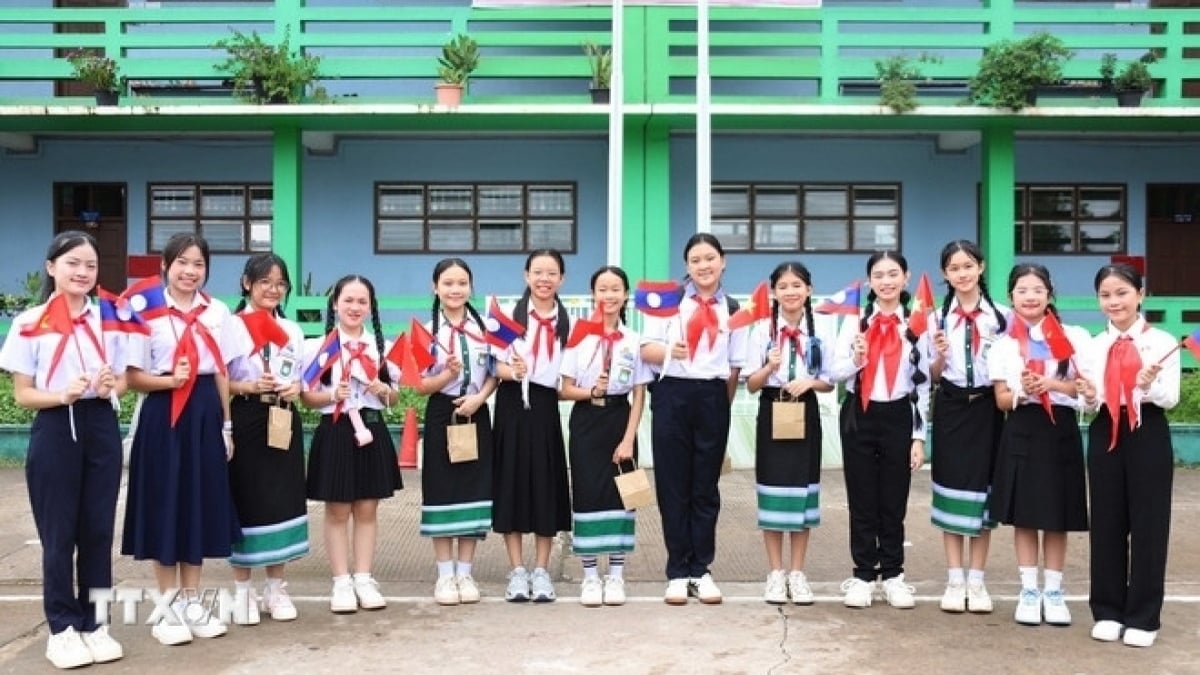




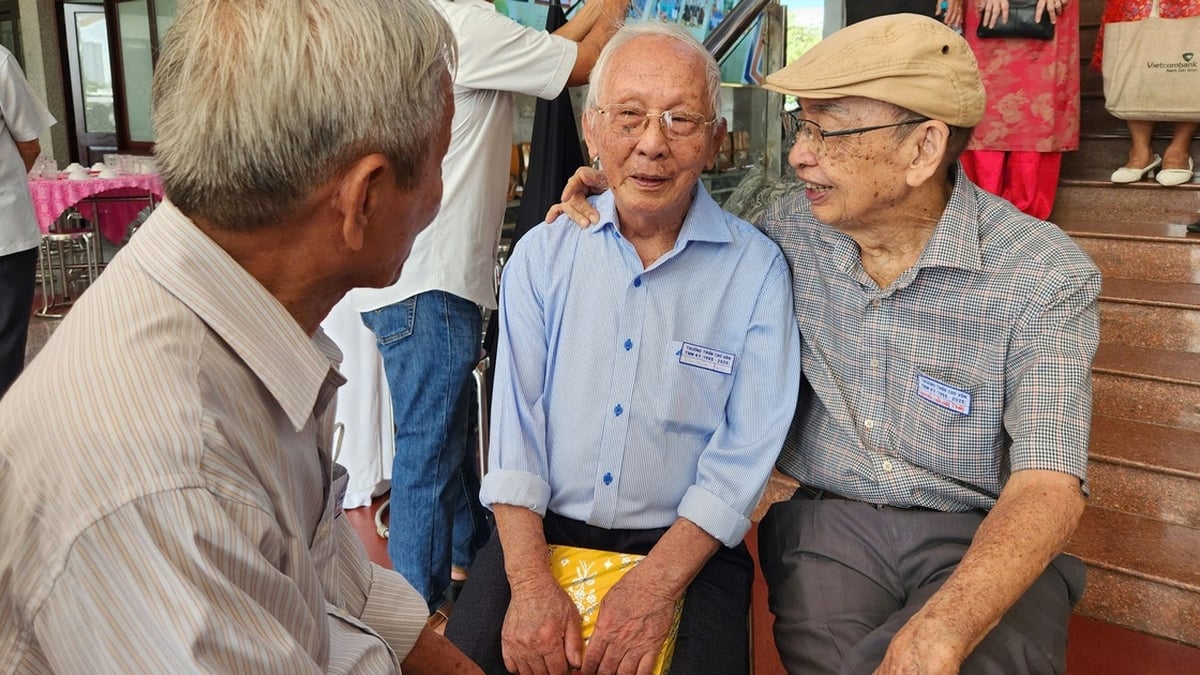





















![[Photo] Gia Lai provincial leaders offer flowers at Uncle Ho's Monument with the ethnic groups of the Central Highlands](https://vphoto.vietnam.vn/thumb/1200x675/vietnam/resource/IMAGE/2025/7/9/196438801da24b3cb6158d0501984818)










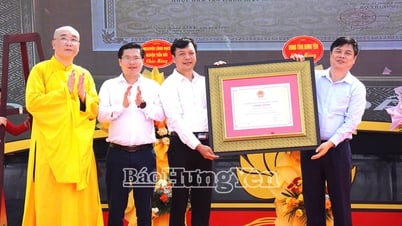

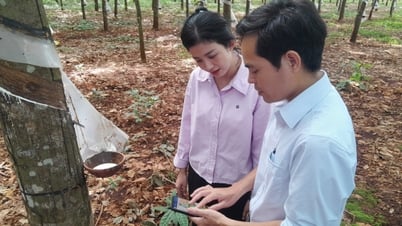

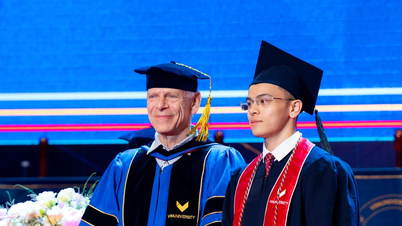


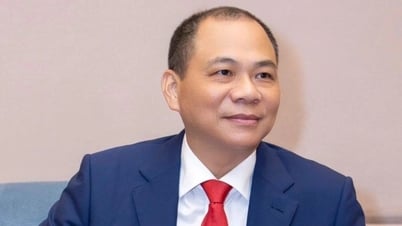

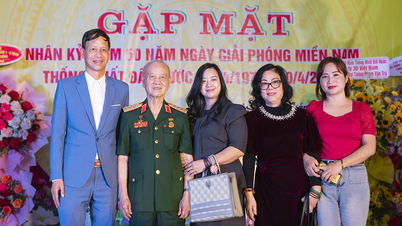

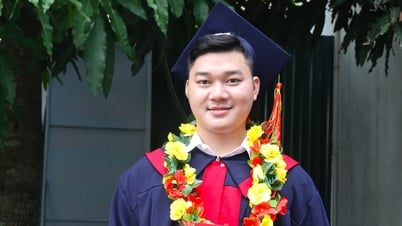












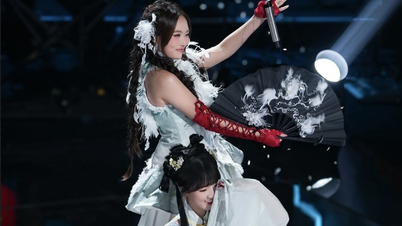




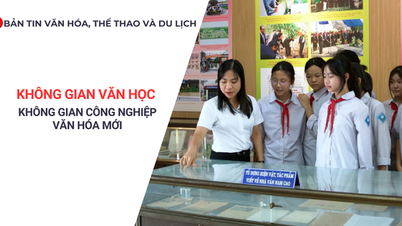




























Comment (0)